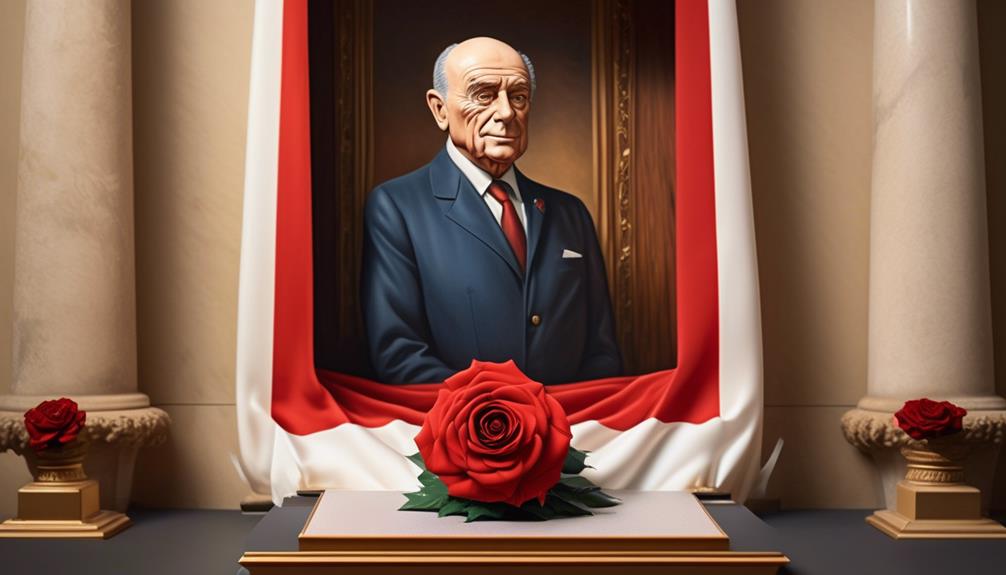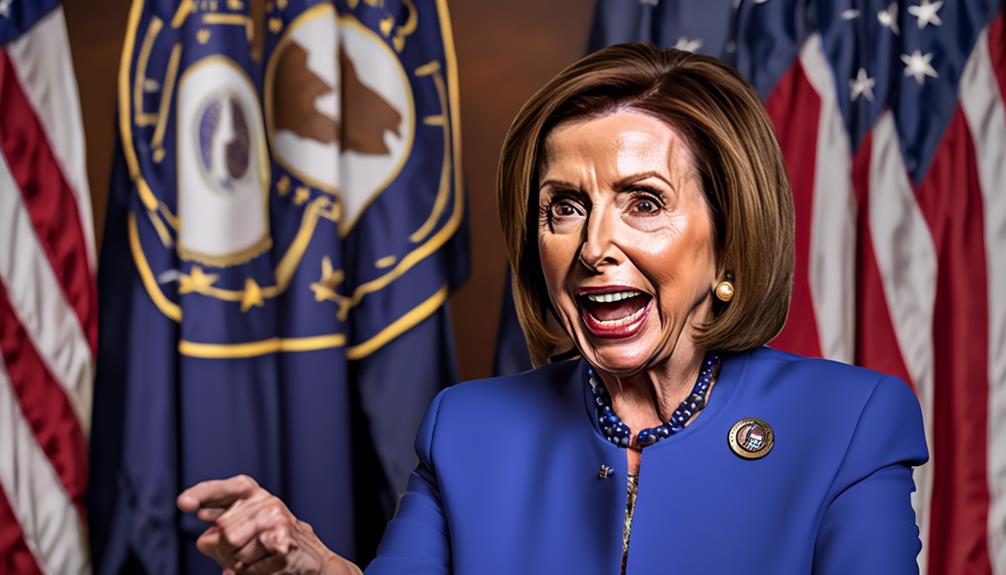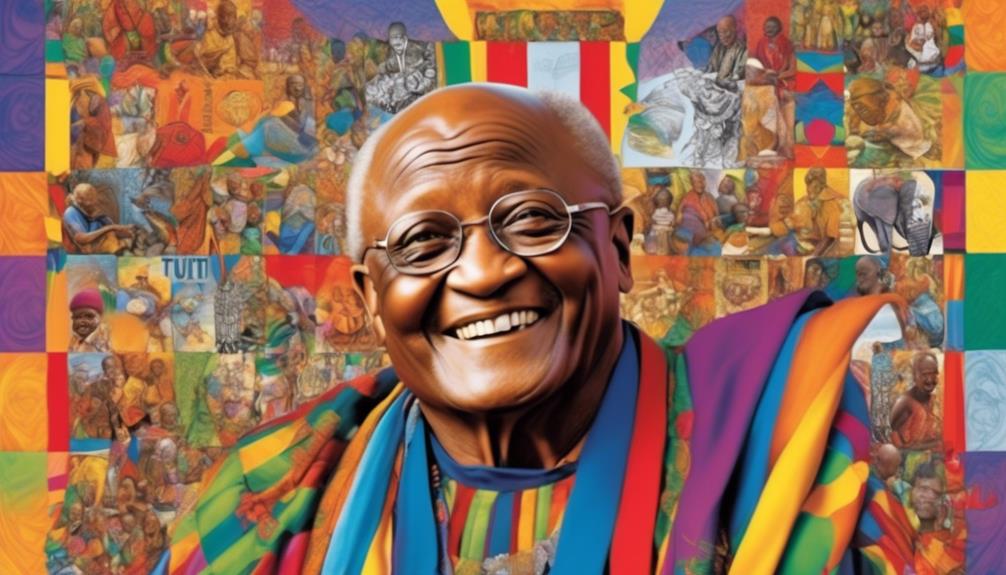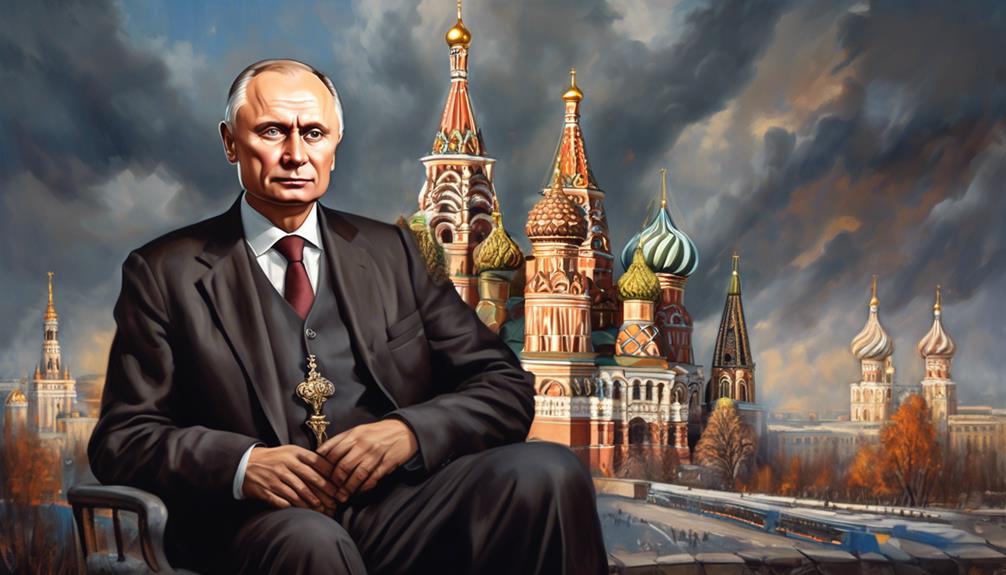Exploring the deep insights of Francois Mitterrand takes us to a moment when France was on the brink of significant transformation. The thoughts of this respected figure still echo with enduring significance, providing us with understanding into the nuances of leadership, politics, and the human condition.
Mitterrand's vision for France, his reflections on democracy, and his perspectives on love, relationships, war, and peace are all meticulously captured in his thought-provoking quotes. As we explore his quotes, we gain a deeper understanding of the legacy and influence he left behind, shaping the very fabric of French society.
Join us in this journey as we uncover the profound insights of the famous President of France, Francois Mitterrand.
Key Takeaways
- Mitterrand believed in a leadership style that combined pragmatism and idealism, emphasizing the importance of compromise and collaboration for meaningful change.
- His political philosophy was rooted in socialist beliefs, advocating for state intervention to reduce inequality and implementing policies such as nationalization and wealth tax.
- Mitterrand had a vision for France that included economic policies aimed at reducing income inequalities, cultural initiatives to promote diversity and preserve heritage, and decentralization of power and support for regional languages.
- He emphasized the importance of democracy, including the balance of power, citizen participation, protection of individual freedoms, and valuing the voices and contributions of all citizens.
Mitterrand on Leadership and Politics
Mitterrand's views on leadership and politics provide valuable insights into his approach and understanding of these crucial aspects of governance.
His leadership style was characterized by a combination of pragmatism and idealism, as he sought to balance the pursuit of power with the pursuit of social justice. Mitterrand believed in the importance of strong leadership, but also recognized the need for compromise and collaboration in order to achieve meaningful change.
Mitterrand's political philosophy was deeply rooted in his socialist beliefs. He believed in the power of the state to intervene in the economy and redistribute wealth in order to reduce inequality. He saw politics as a means to transform society and improve the lives of ordinary people. Mitterrand's commitment to social justice was exemplified by his implementation of policies such as the nationalization of key industries and the introduction of a wealth tax.
However, Mitterrand's leadership style and political philosophy weren't without controversy. Critics argue that his policies ultimately failed to deliver the promised economic prosperity and instead resulted in high unemployment and stagnant growth.
Nevertheless, Mitterrand's legacy as a leader who fought for social justice and pursued his vision of a fairer society remains significant.
Mitterrand's Vision for France

With his strong socialist beliefs and commitment to social justice, Francois Mitterrand envisioned a France that would be transformed through state intervention and economic redistribution. Mitterrand's economic policies aimed to reduce income inequalities and provide equal opportunities for all citizens. His government implemented measures such as raising the minimum wage, increasing social security benefits, and introducing wealth taxes to redistribute wealth from the rich to the poor. Additionally, Mitterrand sought to boost economic growth through nationalization of key industries, investment in infrastructure, and support for small businesses.
In addition to his economic policies, Mitterrand's cultural initiatives aimed to promote diversity and preserve France's cultural heritage. He established the Ministry of Culture and Communication, which led to the creation of numerous cultural institutions and the promotion of French arts and literature. Mitterrand also supported the decentralization of power, granting more autonomy to local governments and promoting regional languages and cultures.
Mitterrand's vision for France was one of a socially just and culturally vibrant nation. While his economic policies faced challenges and criticisms, his commitment to social welfare and cultural preservation left a lasting impact on France's social fabric.
Mitterrand's Reflections on Democracy

Throughout his political career, Francois Mitterrand offered insightful reflections on the nature of democracy and its role in shaping society. Mitterrand had a deep understanding of political systems and possessed a unique perspective on democratic values.
One of Mitterrand's key thoughts on political systems was the importance of a balance of power. He believed that a healthy democracy required a separation of powers between the executive, legislative, and judicial branches. Mitterrand argued that this division of power would prevent the concentration of authority in the hands of a few and ensure checks and balances within the government.
Mitterrand also emphasized the need for inclusivity and citizen participation in democracy. He believed that democratic values encompassed not only the right to vote but also the right to express one's opinions, the right to information, and the protection of individual freedoms. For Mitterrand, democratic societies were those that actively encouraged and valued the voices and contributions of all citizens.
Mitterrand on Love and Relationships

As Mitterrand's reflections on democracy shed light on his understanding of political systems, his thoughts on love and relationships offer a glimpse into his personal beliefs and values.
Mitterrand's personal life was marked by tumultuous relationships and passionate love affairs. Here are some key insights into his views on love and relationships:
- Love as a transformative force: Mitterrand believed that love had the power to change individuals and society. He saw it as a catalyst for personal growth and social progress.
- The importance of loyalty: Mitterrand valued loyalty in relationships. He believed in standing by one's partner through thick and thin, and saw loyalty as the foundation of a strong and enduring bond.
- Balancing personal and political life: Mitterrand faced criticism for his extramarital affairs while serving as president. However, he believed that personal happiness was necessary for effective leadership, and that a leader's personal life shouldn't be divorced from their political role.
- The complexity of human emotions: Mitterrand recognized that love and relationships weren't always straightforward. He acknowledged the complexity of human emotions and the challenges they presented, but still saw them as essential aspects of the human experience.
Mitterrand's personal life was certainly eventful, and his views on love and relationships reflect his complex understanding of the human condition.
Mitterrand's Views on War and Peace
Mitterrand believed in peaceful conflict resolution and prioritized the pursuit of peace. He saw war as a last resort and emphasized the importance of diplomacy and negotiation in resolving conflicts.
Mitterrand's views on war and peace reflect his commitment to finding peaceful solutions and avoiding the devastating consequences of armed conflict.
Mitterrand on Conflict Resolution
In assessing conflicts, it's imperative to consider Francois Mitterrand's perspectives on war and peace. Mitterrand believed in the power of conflict resolution strategies and diplomatic negotiations to achieve lasting peace. His approach to resolving conflicts was guided by a set of principles that emphasized dialogue, compromise, and the pursuit of common interests.
Here are four key insights from Mitterrand on conflict resolution:
- Multilateralism: Mitterrand stressed the importance of involving multiple parties in negotiations to ensure a comprehensive and inclusive approach to resolving conflicts.
- Humanitarian Intervention: Mitterrand recognized the need for international intervention in cases where human rights abuses and violence threatened the security and well-being of innocent civilians.
- Regional Cooperation: Mitterrand advocated for regional organizations and alliances to play an active role in conflict resolution, as they possess a deeper understanding of the specific dynamics and complexities involved.
- Long-Term Vision: Mitterrand believed that sustainable peace required addressing the root causes of conflicts, such as poverty, inequality, and political oppression.
Peace as a Priority
With a steadfast commitment to prioritizing peace, Francois Mitterrand's views on war and peace emphasized the importance of diplomacy and conflict resolution strategies.
Mitterrand believed in the power of peacebuilding strategies to prevent and resolve conflicts. He advocated for promoting diplomacy as a means of resolving disputes and maintaining international stability.
Mitterrand understood that war brought destruction and loss, and that peace was essential for the progress and prosperity of nations. He recognized the need for dialogue and negotiation in order to find peaceful solutions to conflicts.
Mitterrand's approach to peace was rooted in his belief in the value of human life and the importance of preserving it. By prioritizing peace and promoting diplomacy, Mitterrand aimed to create a more peaceful world for future generations.
War as a Last Resort
War should only be considered as a last resort, according to Francois Mitterrand's views on war and peace. Mitterrand firmly believed in the importance of war prevention and the exploration of diplomatic solutions before resorting to armed conflict. His stance reflected a commitment to finding peaceful resolutions to conflicts and maintaining global stability.
Mitterrand's views on war were shaped by his experiences during World War II, where he witnessed firsthand the devastating consequences of armed conflict. He emphasized the need for dialogue and negotiation, advocating for diplomatic channels as the primary means of resolving disputes.
Mitterrand understood that war should be avoided whenever possible, as it often leads to immense human suffering and loss. By prioritizing peaceful solutions, he aimed to foster a world where conflicts are resolved through dialogue and understanding rather than violence and destruction.
Mitterrand's Legacy and Influence

Francois Mitterrand's presidency left a lasting impact on France's political landscape, shaping the country's trajectory for years to come. Mitterrand's political achievements were significant, as he implemented a wide range of reforms that transformed French society.
One of his most notable achievements was the introduction of the 35-hour workweek, which aimed to reduce unemployment and improve work-life balance. This policy had a profound impact on French society, with many workers benefiting from shorter work hours and increased leisure time.
Mitterrand also played a crucial role in strengthening the European Union. During his presidency, he advocated for closer European integration and worked towards the creation of the Euro. His commitment to European cooperation helped solidify France's position as a key player in the European Union and contributed to the establishment of a unified European currency.
Furthermore, Mitterrand's presidency was marked by his efforts to address social inequalities and promote social justice. He implemented policies aimed at reducing poverty, improving access to education and healthcare, and protecting workers' rights. These initiatives had a direct impact on the lives of many French citizens and contributed to a more egalitarian society.
Frequently Asked Questions
Did Mitterrand Face Any Significant Political Challenges During His Presidency?
During Mitterrand's presidency, he faced significant political challenges that tested his leadership skills and decision-making abilities. These challenges included economic stagnation, rising unemployment rates, and social unrest.
Mitterrand's presidency was marked by his efforts to implement socialist policies, which faced opposition from conservative factions and business interests. Despite these challenges, Mitterrand was able to navigate through turbulent times and leave a lasting impact on French politics and society.
How Did Mitterrand's Personal Life and Relationships Influence His Political Decisions?
In analyzing the influence of personal life and relationships on political decisions, it's essential to consider the various factors at play.
Mitterrand's personal life and relationships undoubtedly impacted his decision-making process. The dynamics within his personal circle, such as familial ties and close friendships, could have shaped his perspectives and priorities.
Moreover, his personal experiences, including past relationships and life events, may have influenced his political stance on certain issues.
Understanding these influences provides valuable insights into Mitterrand's decision-making process.
What Were Mitterrand's Views on International Conflicts and Peacekeeping Efforts?
When considering Mitterrand's approach to international conflicts and his stance on peacekeeping efforts, it's important to examine his diplomatic strategies and political decisions.
Mitterrand believed in the power of diplomacy and negotiation to resolve conflicts, emphasizing the importance of peaceful resolutions. He advocated for international cooperation and the involvement of multilateral organizations in peacekeeping efforts.
Mitterrand's views on international conflicts were shaped by his belief in maintaining global stability and promoting peaceful coexistence among nations.
How Did Mitterrand's Leadership Style Impact the French Political Landscape?
Mitterrand's leadership style had a significant impact on the French political landscape. His ability to navigate complex political alliances and his strategic decision-making skills helped shape the direction of French politics during his presidency.
Mitterrand's charismatic and authoritative leadership style allowed him to maintain a strong grip on power and implement his vision for France. His policies, such as nationalization and social reforms, left a lasting impact on the country's political and economic landscape.
What Is Mitterrand's Lasting Legacy and Influence on French Politics and Society?
Mitterrand's lasting legacy and influence on French politics and society can be seen in his transformation of the French political landscape. His leadership style, characterized by a mix of pragmatism and idealism, left a significant impact.
Through his policies and reforms, Mitterrand shaped the economic, social, and cultural fabric of France. His commitment to social justice and equality resonates to this day.
Mitterrand's influence on French politics can be seen in the continuation of his party, the Socialist Party, and his ability to navigate the complex political landscape of France.
What Are Some Memorable Quotes from Francois Mitterrand, a President of France?
François Mitterrand’s tenure was marked by poignant utterances, yet one cannot overlook the wisdom of his predecessor. Georges Pompidou quotes France president with an air of poetic insight, often reflecting on unity and progress. One such memorable proclamation was, “A man of state must have a vision for his country.
Conclusion
In conclusion, Francois Mitterrand wasn't only a famous president of France, but also a visionary leader who left a lasting impact on the nation. His quotes reveal his profound insights on leadership, politics, democracy, love, and war.
Mitterrand's legacy continues to shape the country's political landscape and his influence will forever be remembered. Like a guiding light in the darkness, Mitterrand's words inspire and provoke thought, reminding us of the power of leadership and the importance of fighting for peace and justice.
Fritz is a writer whose humor and wit infuse life into words. His creativity, combined with a profound love for the English language, makes him a unique voice at afterQuotes. Fritz’s engagement with books, culture, and social media adds depth to his contributions, making them resonate with our diverse audience.










